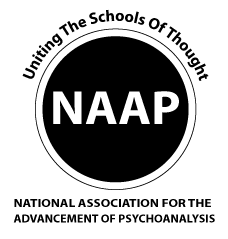PATAKI SIGNS PSYCHOANALYTIC LICENSING BILL
PSYCHOANALYSIS ESTABLISHED AS A LICENSED, INDEPENDENT PROFESSION
by Pearl Appel
On December 9, 2002, Governor George E. Pataki signed into law a bill–A.11769/S.7727–establishing psychoanalysis as an independent licensed profession in New York State. With the Governor’s approval of this important bill (Chapter 676 of the Laws of 2002), we are at the threshold of a new era for psychoanalysis in New York State.
The reality of the legal acceptance of psychoanalysis as an independent profession now exists side by side with its legal acceptance as a postdoctoral specialization of psychology and post mental health specialization of the other licensed mental health professions through exemption. Though genuine philosophical differences do not disappear with the stroke of a governor’s pen, a legal basis for coexistence has been established. (See Pearl Appel Column below.)
Pearl Appel Column
This column is devoted to the significance of the Senate and Assembly of the State of New York unanimously voting to pass, and the governor of the State of New York signing into law, legislation recognizing the profession of psychoanalysis as independent and at the same time accepting an expanded scope of practice for psychology that includes the practice of psychoanalysis. The apparent paradox of the state sanctioning both positions in the same bill is not a contradiction but a reasonable solution to a controversial issue.
Now, for the first time, all NAAP members from New York who are registered certified psychoanalysts will be eligible to be licensed as mental health professionals. Though NAAP members all have an accredited master’s degree or higher in addition to their psychoanalytic training, members who come from the professions of psychology, social work, medicine, or nursing may already be state licensed, while members who come from education, science, the arts, or a myriad of other fields are not.
NAAP is a unique psychoanalytic organization in that it has always welcomed diversity in theoretical orientation and inclusivity in background training. It has always accepted all members as independent professional psychoanalysts based on their training as psychoanalysts.
There are those who feel that a licensable mental health background is a necessary prerequisite for anyone who trains to become a psychoanalyst. The concern is that psychoanalytic candidates who do not have this background may lack the needed knowledge or experience to draw on to eventually become good psychoanalytic practitioners.
The requirements for licensing of psychoanalysts, set forth in Article 163 of the bill, should dispel the fears that have been expressed concerning inadequate training. Free-standing psychoanalytic institutes, if not already doing so, are obliged to prepare all their candidates with the extensive course work, personal analysis, control analysis, and clinical experience necessary to graduate highly trained license-eligible psychoanalysts.
On the other side of the issue, there are those who are concerned that psychologists and other licensed mental health professionals do not teach psychoanalysis in their educational programs. They believe that the bill gives psychologists “the right to “practice psychoanalysis without psychoanalytic training.”
The missing element here is that laws governing the professions bar professionals from practicing beyond their training capabilities and outside their scope of practice. In New York State, licensed mental health professionals, in fields other than psychoanalysis, are legally, morally, and ethically obliged to receive proper training–and there is no reason to believe they do not–if they practice psychoanalysis.
When the law takes effect and amends the psychology act to include psychoanalysis, and at the same time allows for an independent license in psychoanalysis, the citizens of New York can be confident that a mental health professional who uses the title Psychologist-Psychoanalyst, Social Worker-Psychoanalyst, or Licensed Psychoanalyst, is legally bound to have the appropriate training.
We believe that this new law is an historic recognition of the role and work of psychoanalysts who train and practice in New York, and we hope that its passage will engender a new spirit of collegiality and unity within the profession.
